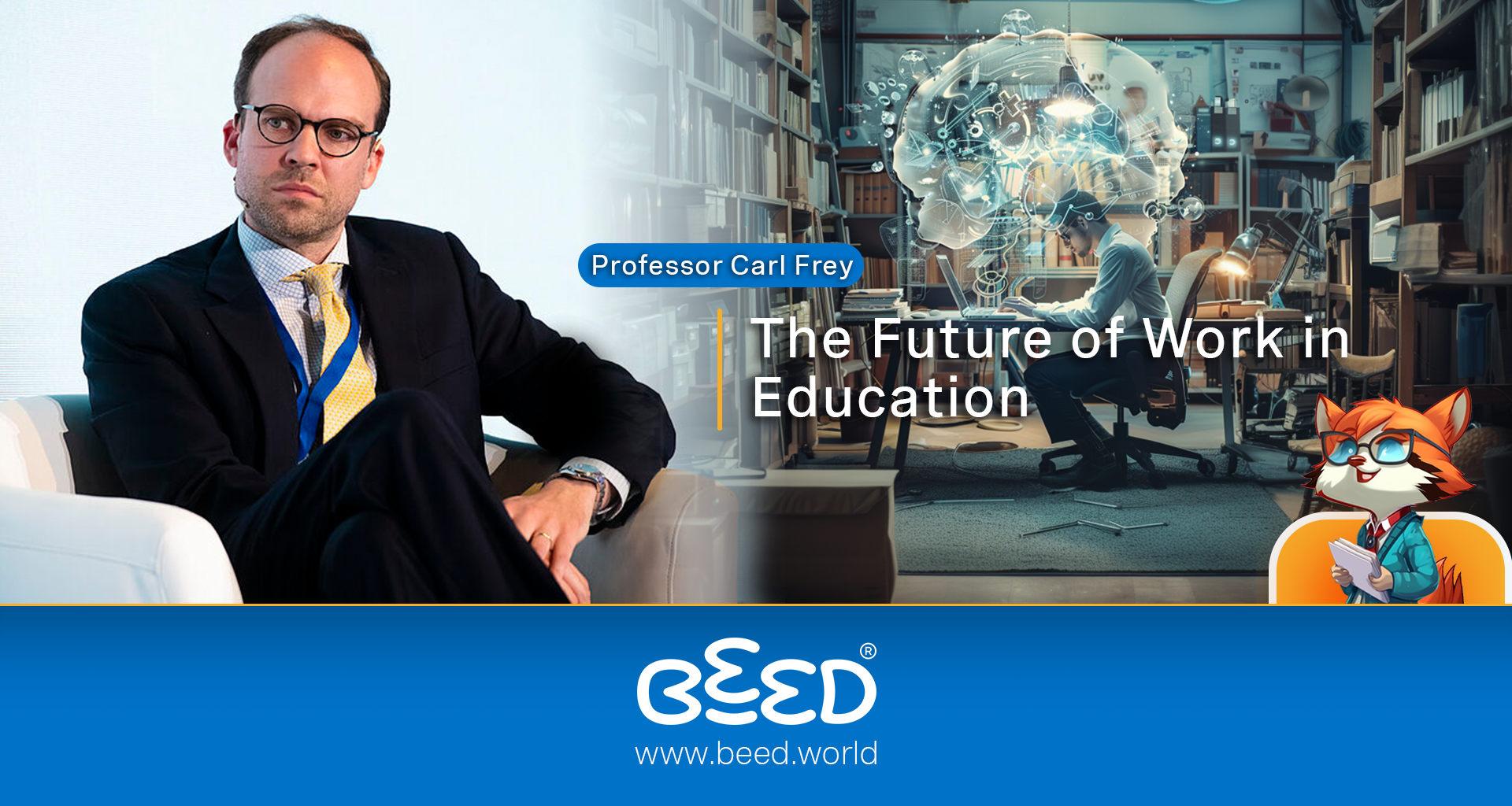Case Study: Professor Carl Frey and the Future of Work in Education

Carl Benedikt Frey - Director, Programme in Technology and Education, Oxford University
Context: Rapid technological advancements raise concerns about automation and job displacement in the 2020s. Professor Frey's work focuses on the future of work and its implications for education.
Professor Frey's Argument: Frey, co-author of the book "The Second Machine Age," argues that automation will increasingly replace routine tasks across various sectors. This necessitates a shift in educational focus to prepare students for jobs demanding creativity, critical thinking, and adaptability.
Key Ideas
- Skills for the Future: Frey emphasizes the importance of fostering "human-centric" skills that complement automation, such as problem-solving, complex communication, collaboration, and emotional intelligence.
- Rethinking Curriculum: The traditional model of rote learning and standardized testing needs to be re-evaluated to encourage innovation, entrepreneurship, and lifelong learning.
- Personalized Learning: Frey proposes a shift towards personalized learning pathways that cater to individual student strengths and prepare them for diverse career paths in a rapidly changing job market.
Case in Action: Inspired by Professor Frey's ideas, several schools across the globe are implementing:
- Project-Based Learning: Students work collaboratively on projects that require them to apply critical thinking and problem-solving skills to real-world problems.
- Social-Emotional Learning (SEL) Integration: Curriculums incorporate programs that foster self-awareness, relationship management, and responsible decision-making, essential skills for navigating the future workplace.
- Focus on Technology Literacy: Schools go beyond basic computer skills, equipping students with the ability to critically analyze information, identify online biases, and utilize technology effectively for learning and innovation.
Challenges and Considerations
- Teacher Training: Educators need training and support to implement new teaching methods for fostering the skills identified by Professor Frey.
- Equity and Access: Ensuring all students have access to resources and opportunities to develop future-proof skills remains a crucial challenge.
- Collaboration with Industry: Collaboration between educators and industry leaders is essential to ensure educational programs align with future workforce demands.
Conclusion: Professor Frey's insights on the future of work and education are prompting conversations and pedagogical changes. While the path forward necessitates addressing challenges like teacher training and accessibility, his work offers valuable guidance for preparing students to thrive in an increasingly automated world.